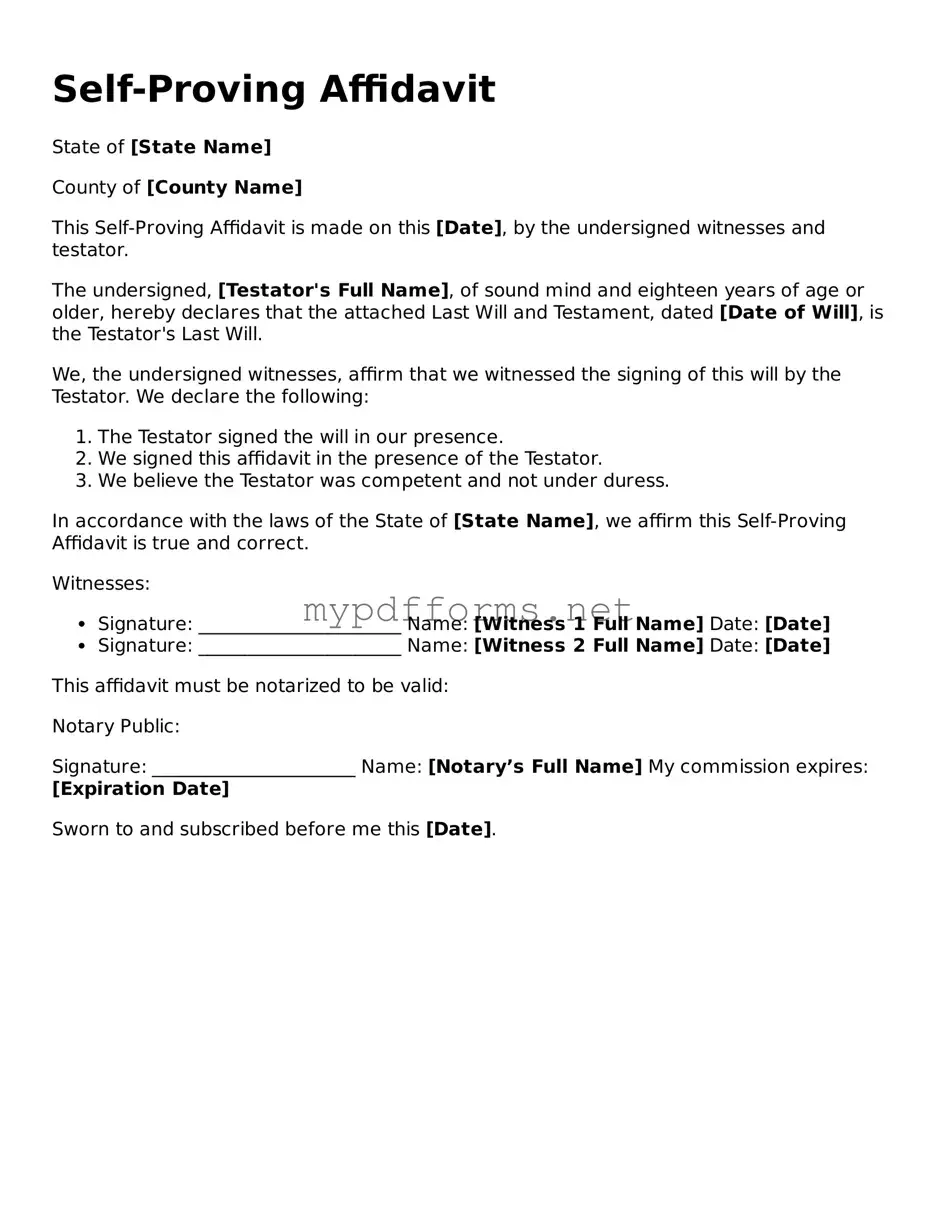Self-Proving Affidavit Template
A Self-Proving Affidavit is a legal document that allows a will to be validated without the need for witnesses to testify in court. This form streamlines the probate process, providing a straightforward way to affirm the authenticity of a will. If you're ready to simplify your estate planning, consider filling out the Self-Proving Affidavit form by clicking the button below.
Modify Document Here

Self-Proving Affidavit Template
Modify Document Here

Modify Document Here
or
⇓ PDF
Need to check this off quickly?
Edit and complete Self-Proving Affidavit online in just a few steps.